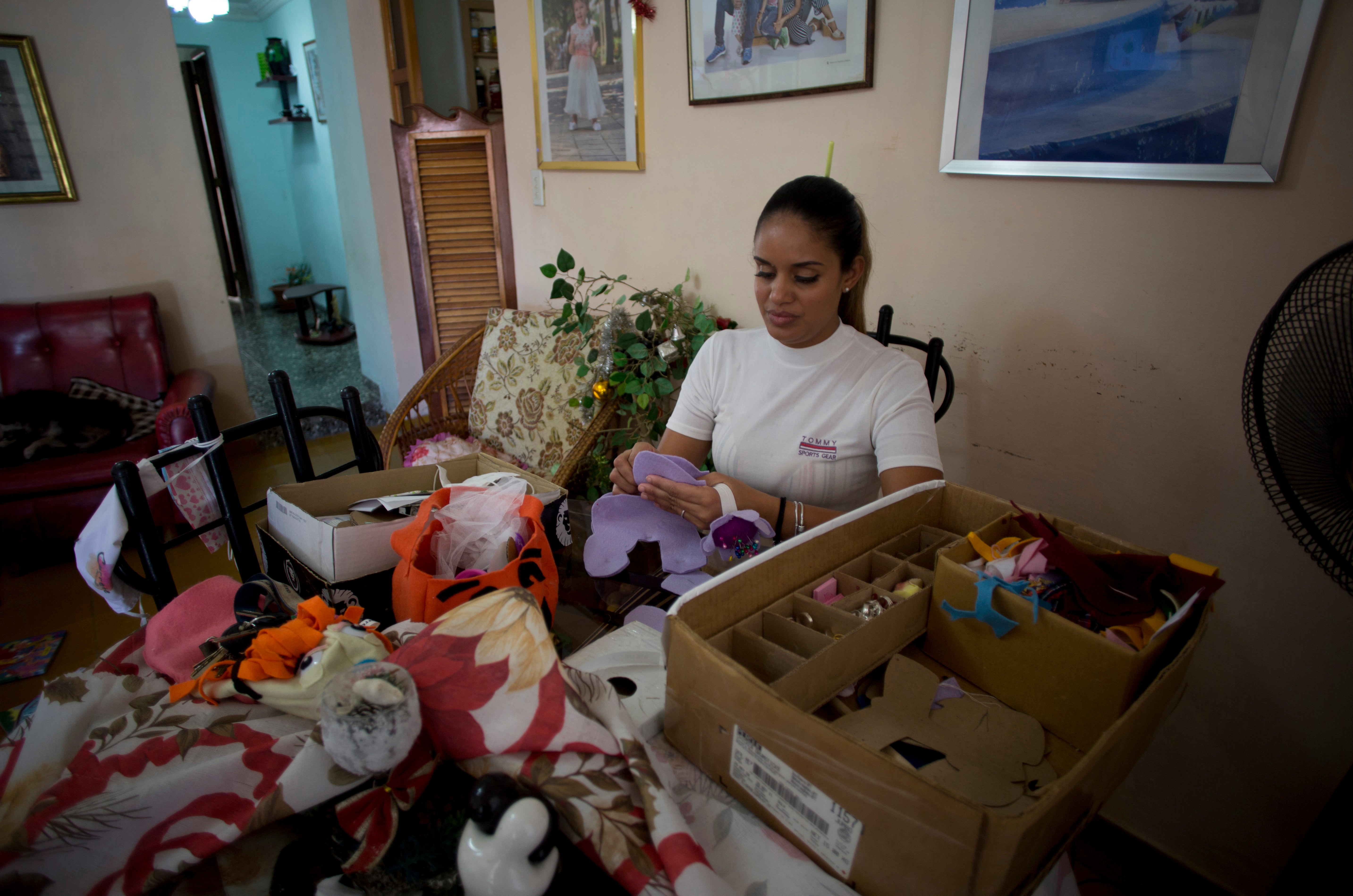Cuban women push to join business opening, cite obstacles
Cuba was an early leader in recognizing women’s rights and equality after Fidel Castro’s revolution in 1959

Cuba was an early leader in recognizing women’s rights and equality after Fidel Castro’s revolution in 1959. Women were put in positions of power and responsibility, and the government legalized abortion and created day care centers, steps that allowed women to join the workforce alongside men.
Yet Cuban women who are seeking to take part in the island's gradual opening to independent small businesses say they are facing unique challenges put up by a patriarchal society that favors men and male-owned businesses.
At a recent business expo for women entrepreneurs, Natalhie Fonseca, owner of Carrete, an online enterprise she started to make and sell handmade decorations for children’s rooms, said women are held back by Cuban society's expectations that they also be homemakers.
Fonseca said she rises at dawn, washes, cooks, takes care of her two girls, cleans, and works part-time in her husband's coffee shop, in addition to working on her own business.
“Twenty-four in a day are not enough,” she lamented. ”If we had a little help."
AIynn Torres, a researcher on gender issues at the Rosa Luxemburg Foundation, said that while Cuba “made a very big leap” in the 1960s and '70s in bring women into the workforce, its efforts have stagnated.
She said 60% of Cuba's university graduates are women, but they mostly end up in the least paid economic sectors, such as education or social assistance. Women account for only a third of self-employed workers in Cuba, whose economy is still largely state-run businesses, and they make up just over 20% of the owners of small- and medium-size businesses, according to official figures.
“Conscious and systematic state actions, not only words, are absolutely essential to ensure the greater participation of women,” Torres said.
She said there should be more credit available for women business owners and more done to care for children, the sick and the elderly, which are responsibilities that now fall mainly on Cuba's women.
Battered by low economic productivity as well as the obstacles presented by the U.S. embargo, Cuba’s government a gradual opening of the private sector during the last decade.
Then President Raul Castro added licenses to open private businesses, legalized real estate transactions and the sale of unused land, and made credit more accessible, among other measures.
According to official figures, in 2020 there were 602,000 self-employed Cubans, some of whom have started their own businesses. About 210,000 of them were women.
In September, current President Miguel Díaz-Canel approved the creation of privately owned businesses — something that was once inconceivable after authorities closed all privately owned business on the island in 1968.
In the five months since, licenses have been granted for 1,014 additional private businesses, 22% of them for women.
But theory ran into practice for Ena María Morales, who wanted to grow plants needed for her business to make all organic handmade soaps. She said male farmers resisted her efforts to acquire the raw materials.
“That was my first confrontation with a macho world," she said. "... The men would say to me, ‘You with that long hair, no, no, no.’”
The COVID-19 pandemic also has been an impediment for many women hoping to start their own businesses. With their children at home because of cancelled schools and husbands or partners marching off to work, many struggled to find time for entrepreneurship.
“It is a very new thing that women are joining little by little and I hope that soon that will really change, because although we are the directors of the house, there are many empowered women,” said Ana Mae Inda, who sells children’s clothes.
Women of color said race is yet another difficulty in opening up businesses.
“Being a woman and being Black means that we face certain barriers, not only in the social world but also within the entrepreneurship itself,” said Yurena Manfugás at the clothing shop she opened with her mother, Deyni Terry, to cater to Afro-Cuban women.
Terry, a lawyer and women’s activist, said the real problem is Cuba’s social construct.
“The constitution of the Republic of Cuba continues to speak in the masculine. ... We come from a totally sexist culture,” she said.
___
Andrea Rodriguez on Twitter: www.twitter.com/ARodriguezAP